Parkinson’s is a degenerative condition that affects over one million Americans - even greater than the number of those suffering from multiple sclerosis, muscular dystrophy and Lou Gehrig's disease combined. There is no cure, but this month researchers at the University of Alabama at Birmingham made two important breakthroughs for treating the disease. One group of researchers has discovered the cause of the negative side-effects of L-DOPA and a potential way to counter-act it. Another group of researchers have “discovered an interaction in neurons that contributes to Parkinson’s Disease and they have shown that drugs now under development may block the process.”

(Image of the University of Alabama, Birmingham courtesy of Jaymay via Wikimedia Commons)
Read More
Tags:
Parkinson's Disease Research,
University of Alabama Birmingham,
University of Alabama at Birmingham,
Parkinson's Disease,
biomedical researh,
Dr. Volpicelli-Daley,
Dr. Standaert
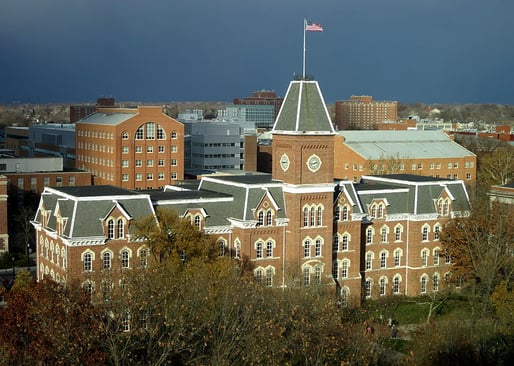
(Image courtesy of Wikimedia Commons)
Dr. Abraham Badu-Tawiah, assistant professor at Ohio State University, is out to revolutionize the world of diagnostic testing. By making paper strips that can detect malaria and well as certain types of cancers, he hopes to make testing more practical and affordable. People would be able to simply apply a drop of blood to the paper test strip at home, much like diabetics do when testing their blood sugar, and then mail it to the laboratory. This new method would make medical diagnostics much more accessible for those who can't easily get to a lab for testing.
Read More
Tags:
Midwest,
Ohio State University,
Ohio,
Cancer,
malaria,
biotech vendor show,
Columbus,
Dr. Abraham Badu-Tawiah
New York's Columbia University is nearing the completion of an ambitious building project more than three years in the making. Columbia University Medical Center (CUMC) will open its new state-of-the-art building this August. Work began on this 100,000 square-foot, fourteen-story glass tower in September of 2013 thanks in large part due to a financial gift from Dr. Roy Vagelos and his wife Diana. So it seems fitting that the building will be named the Vagelos Education Center.

(Image Courtesy of Wikimedia Commns & Beraldoleal)
Read More
Tags:
Medical Center,
Biotech Event,
New York,
Columbia University,
East Coast,
Columbia,
Biotechnology Vendor Fair,
NY,
New York City,
Columbia University Medical Center,
new Building,
NYColumbia University,
2016,
Medical equipment
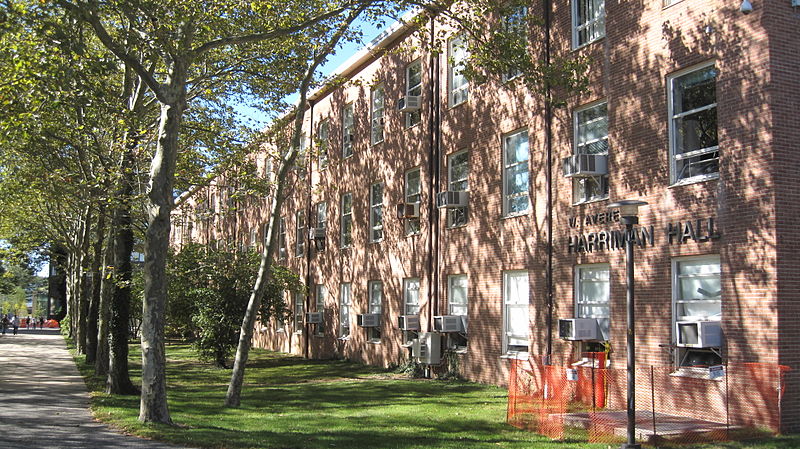
(Image courtesy of Wikimedia Commons)
Anti-fungal research at New York's Stony Brook University earned $6 million in grants from the National Institute of Health. Dr. Maurizio del Poeta’s breakthrough in attacking deadly fungus came from a recent research project that yielded an unexpected result that might lead to a vaccine. He and his team were searching for a gene that would metabolize a fungal sphingolipid. Instead, the gene he mutated caused mice that were exposed to it to become resistant to fungal infections. In an article on the Stony Brook University’s news site, Dr. Poeta said , “We think that this discovery will open the road to a new vaccination strategy against fungi.”
Read More
Tags:
Northeast,
New York,
Stony Brook University,
East Coast,
NY,
NIH grant,
new research grant,
SunySB,
Fungal Infections,
BioResearch Product Faire™,
BioResearch Product Faire,
NIH awards 2017,
2017 research funding
 (Image courtesy of Wikimedia commons)
(Image courtesy of Wikimedia commons)
University of Alabama at Birmingham received a $29 million grant from the National Cancer Institute. This five year core grant will support six research programs at the UAB Comprehensive Cancer Center. The renewal of the Cancer Center Support Grant, the most prestigious federal grant that a cancer research and treatment program can earn, also extends UAB’s elite “comprehensive” designation. According to the UAB News website this designation is awarded for scientific excellence and the ability to integrate diverse research approaches in the fight against cancer.
Read More
Tags:
Bioresearch funding,
cancer research,
Alabama,
University of Alabama,
Cancer Treatment,
Cancer,
University of Alabama Birmingham,
UAlab,
UAB,
University of Alabama at Birmingham,
Cancer Center,
cancer researchers,
fight cancer,
2016,
cancer reserach,
Bioresearch Grant,
Comprehensive Cancer Center
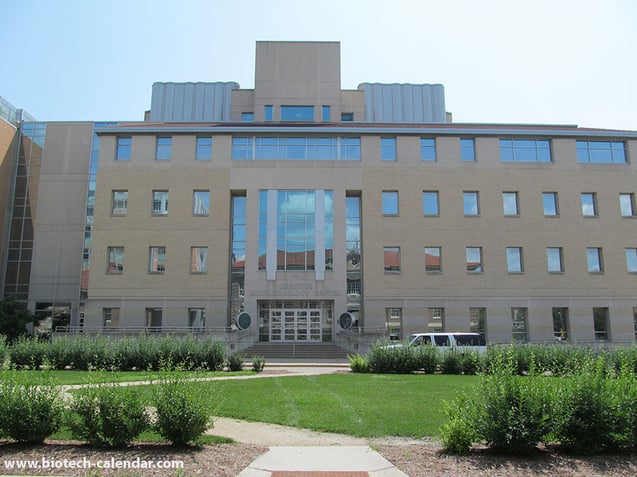
Two University of Wisconsin-Madison researchers won 2016 Shaw Scientist Awards. This program has supported early research efforts pursuing promising ideas in biochemistry, biological sciences and cancer research for over thirty years. The award given by the Greater Milwaukee foundation includes a $200,000 grant for each recipient to be used as seed money for his or her respective projects. Feyza Engin, Ph.D., Assistant Professor of Biomolecular Chemistry, is researching type 1 diabetes. Srivatsan Raman, Ph.D., Assistant Professor of Biochemistry, is conducting research into the properties that allow proteins to change shape.
Read More
Tags:
Bioresearch funding,
Diabetes,
University of Wisconsin Madison,
Protein Research,
Type 1 Diabetes,
University of Wisconsin School of Medicine,
Dr. Srivatsan Raman,
Dr. Feyza Engin
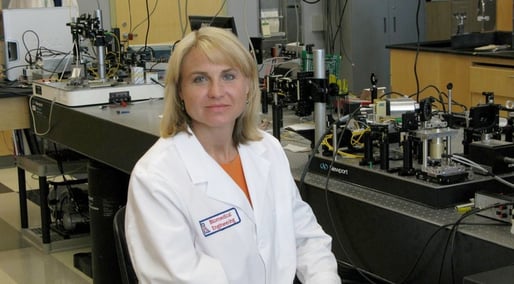 (Dr. Barton, researcher at the University of Arizona. Photo courtesy of U of A)
(Dr. Barton, researcher at the University of Arizona. Photo courtesy of U of A)
The National Cancer Institute is funding a million dollar study at the University of Arizona to help detect ovarian cancer sooner. It is hoped this project will lead to the first effective screening test for a disease that kills 14,000 women a year and often gives little to no warning of its presence until it’s too late.
Read More
Tags:
University of Arizona,
University of Arizona Tucson Research,
Arizona,
UAZ,
Biotechnology Vendor Fair,
Research Funding,
Tucson,
University of Arizona Tucson,
UA,
ovarian cancer,
2016,
cancer reserach,
Dr. Jennifer Barton,
Optical imaging technology
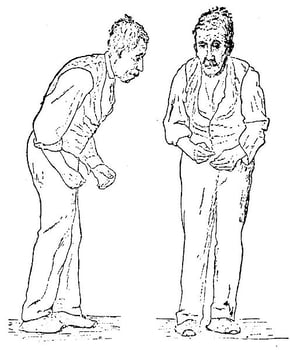
(1886 Sketch of Person with Parkinson's by Sir William Richard Gowers Courtesy of Wikimedia Commons)
Researchers at the University of Alabama, Birmingham have discovered a potential new approach to reducing the damage done by Parkinson's disease. They found that suppressing a key cell-signaling pathway in the brain lessened the destructive inflammation and nerve degradation in the area of the brain affected by Parkinson’s. In the study, rats were used to model the disease by inducing an overexpression of a-synuclein, a protein that is abundant in the human brain. The accumulation of α-synuclein is a core feature of Parkinson’s disease. This accumulation leads to the activation of the brain's immune cells and the production of inflammatory signaling chemicals, which leads to neurodegradation. The rats that were then given a JAK/STAT pathway inhibitors (known as Jakinibs) did not have the immune response, the inflammatory activation, or the neurodegeneration that those that did not receive the inhibitor experienced.
Read More
Tags:
Parkinson's Disease Research,
Alabama,
University of Alabama,
University of Alabama Birmingham,
UAlab,
Birmingham,
AL,
University of Alabama at Birmingham,
2016,
Parkinson's Disease
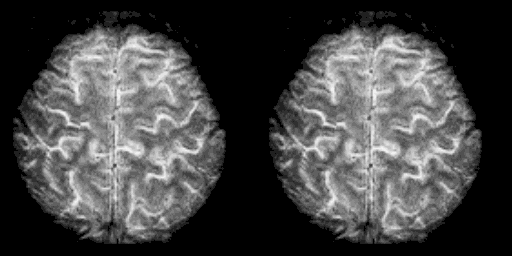
(Image of brain by functional MRI via Wikimedia Commons)
Cognitive neurologist, Rosie Cowell of the University of Massachusetts, Amherst received a nearly $600,000 grant from the National Science Foundation. The funding will be used to develop and test her theory of how fine-grained visual perception interacts with the area of the brain critical to memory.
Read More
Tags:
University of Massachusetts Amherst,
University of Massachusetts,
Bioresearch event,
brain research,
MA,
research grant,
Amherst,
UMASS,
Bioreseach,
2016,
fMRI,
Rosie Cowell
A pioneering new study at Ohio State University found a link between chronic stress and short-term memory issues. In the study, mice were subjected to repeated visits from an aggressive, larger intruder mouse. Researchers found that the mice repeatedly exposed to the intruder had more difficulty recalling where the escape hole was in a maze they’d mastered prior to the stressful period, compared to mice that had not been stressed.
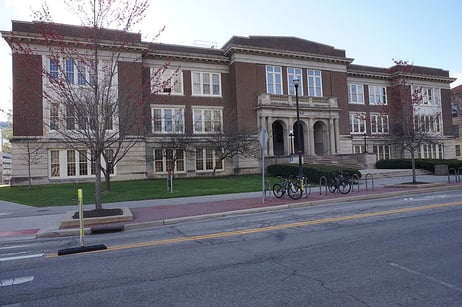
(Image Courtesty of Wikimedia Commons and Maria Rimmel)
Read More
Tags:
Ohio State University,
Ohio State,
Ohio State University life science research,
brain research,
Ohio State life science,
Ohio State life science research,
Biotechnology Vendor Fair,
Ohio State University life science,
Columbus,
OH,
OhStu,
stress,
2016,
Dr. Godbout,
memory loss






 (Image courtesy of
(Image courtesy of 



